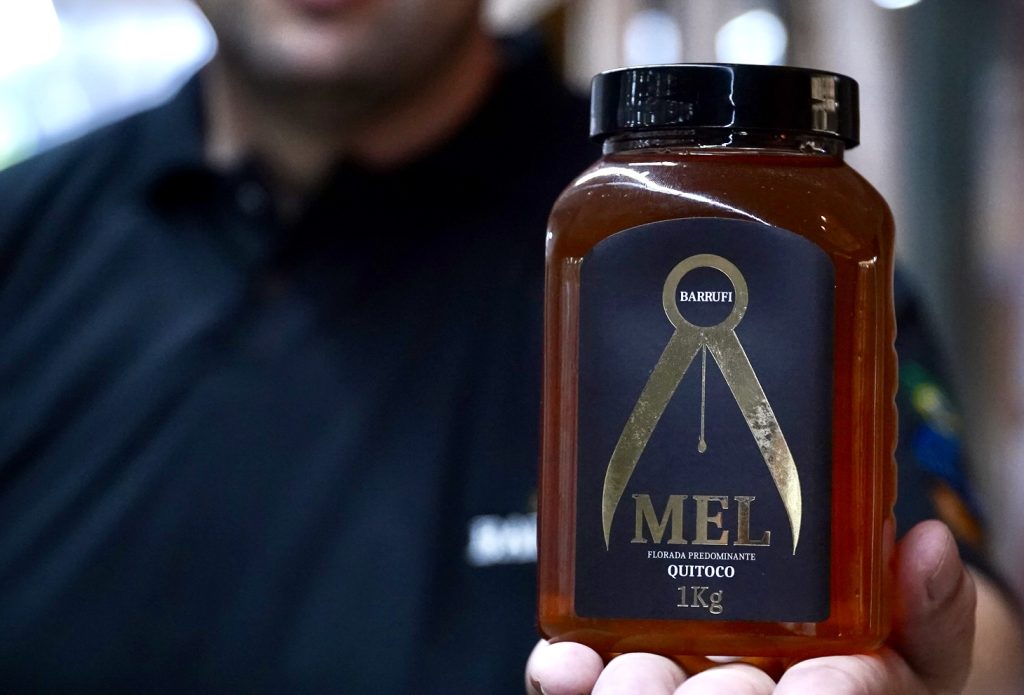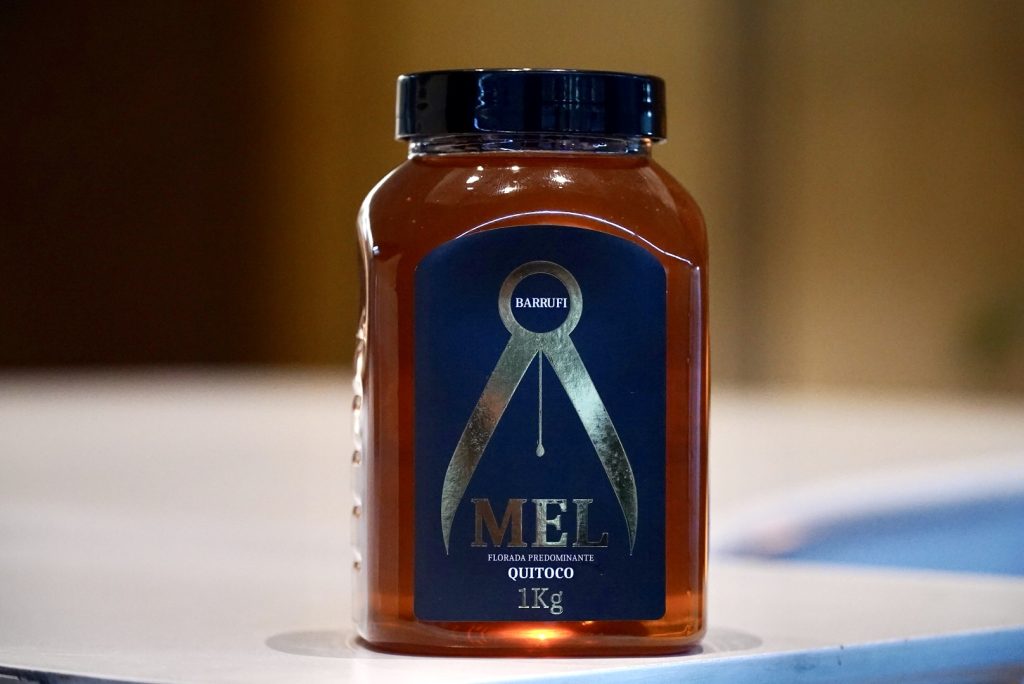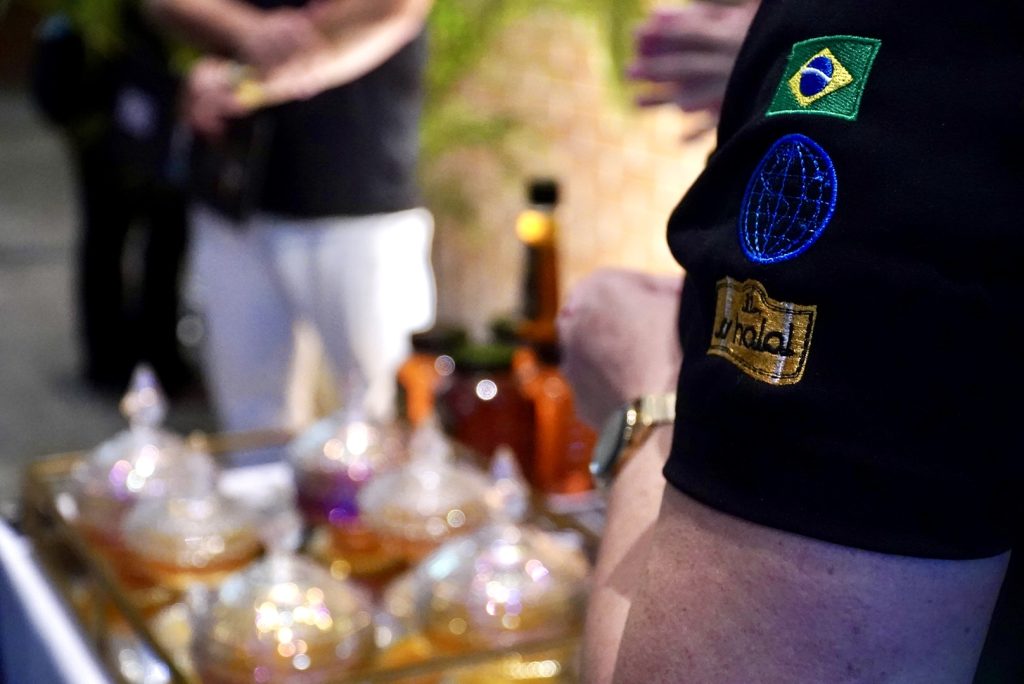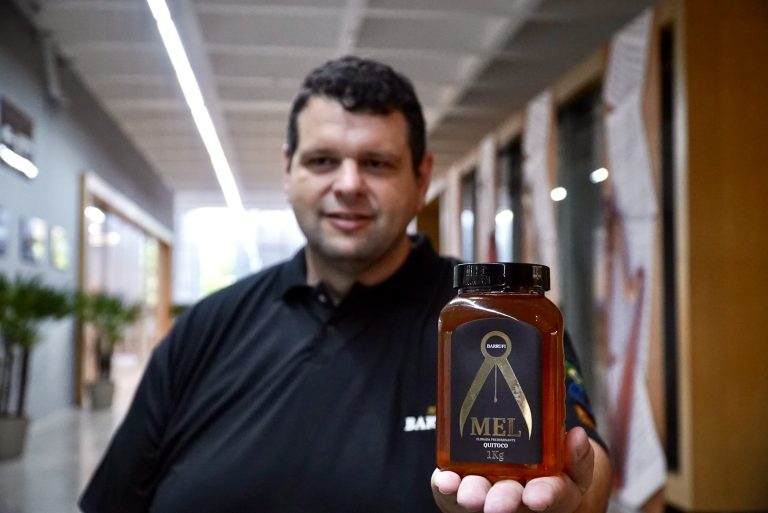São Paulo – Brazilian company Mel Barrufi makes halal-certified premium honey and made the requirements of this market the focus of its business. The company has experience exporting to North America and Europe but has focused on breaking into Muslim-majority countries, to which its product is more than ready.
The halal certification attests that a product is fit for Muslim consumption. It is also deemed as a synonymous for quality, as halal requirements demand high production and safety standards.

The history of Mel Barrufi with halal started in 2021 when current CEO and halal consultant Cleber Baruffi Camargo spent eight months in Europe studying the honeys offered in the market. He and his team tasted several honeys whose label information didn’t match what was actually inside. Until he came across a halal honey. “It caught our attention for its quality,” he said. Everything on its label, he said, the honey really delivered.
His interest was picked, and he determined that by using the diversity of honeys that could be offered by his plant, he would have the capacity to make halal premium honey, and not just a blend with the Chinese product, as a large part of the market does, or just an input to be used in other products. Products from other countries are usually added to the Chinese honey to improve its flavor.
The transformation
From then on, the Barrufi business has been redesigned, and the company got its halal certification by SIILHalal certifier. “We know that Muslims offer the best to their family,” said Camargo on the value added to the product to cater to this public. Packages, of 250 grams, 500 grams and 1 kilo, have also been revamped.

The industrial plant has been reshaped, and the product changed. Now Barrufi offers honey from a various range of origins, according to the biome, tree or flower where bees collect their nectar. “Each blossom is unique, so we decided to label each lot according to this uniqueness,” he says.
So, the company offers honey like Wildflower from the collection of nectar by the bees in wildflowers, Eucalyptus from the nectar obtained amid these trees, and Quitoco, produced in rural and wild areas in Brazil. And there are also an endless number of subdivisions according to the local vegetation which can feature from peppertree to Japanese raisin tree, the latter a seasonal crop.
Mel Barrufi is headquartered in the southern town of Osório and moves its beehives to various wild environments based on the type it wants to produce. Native forests, untouched rivers, and reserves are some of the places where the beehives are taken to. The company has a nursery to ensure the continuity and reposition of hives. “It’s a hard genetic work,” he says.
A halal honey
The halal process brings into production high standards for hygiene, quality, and staff awareness, says Camargo. Despite being a natural product, there are specific requirements for its certification. The CEO mentions, for example, that honey can have a certain ethylic content according to the moisture. Therefore, humidity control is an important part of halal honey production.

With all adaptations in place, Mel Barrufi is now in negotiations with some Muslim-majority countries to sell its halal premium honey to their markets. There has been talks with Saudi Arabia, the United Arab Emirates, and Indonesia, as well as a pilot experience with Italy. Mel Barrufi has exported the common product to Germany, the United States, and Canada, but is now focused on selling premium and halal. The company has two plants, one of halal premium honey and another of common.
The company’s CEO presented earlier this week their experience with halal during a halal road show in Rio Grande do Sul’s capital city Porto Alegre. The event was held by the Halal do Brazil project which is spearheaded by the Arab-Brazilian Chamber of Commerce (ABCC) and the Brazilian Trade and Investment Promotion Agency (ApexBrasil) to boost the Brazilian supply of halal value-added foods to the international market. Mel Barrufi is part of the project.
Honey from generation to generation
Honey production is part of the Baruffi family’s history. The company is now on the hands of five siblings, who established the business in 1996. But honey has been part of their family’s history since the arrival of their great-grandparents from Italy to Brazil in the early twentieth century. Both the CEO’s mother, who’s a Baruffi, and his father, a Batista Camargo, came from beekeeper families.
Read more:
Rio Grande do Sul: 5th largest exporter to Muslims
Working at the farm and keeping a distillery, the couple eventually decided to invest in beekeeping to continue their family history with honey. “They sold all of their chickens to buy equipment and start beekeeping,” says Camargo, recounting what his parents used to say. The money was used to buy wooden boards and make the first boxes for bees to live in.
The name of the business came naturally as customers used to call the product the honey of the Baruffis. For citizenship reasons, the family changed their last name to the Italian original name, Baruffi, with one R and two Fs. But the company keeps being Barrufi, with two Rs and one F.
The couple’s children decided to formalize the business when they grew up and continue the honey production but with larger ambitions. So, they have gotten accreditations and licenses to sell it across Brazil and export, and they managed to expand the business. The company raises awareness in the Latin American country on what the halal honey is. At the Halal do Brasil event, a tasting was offered to the guests.
Translated by Guilherme Miranda




